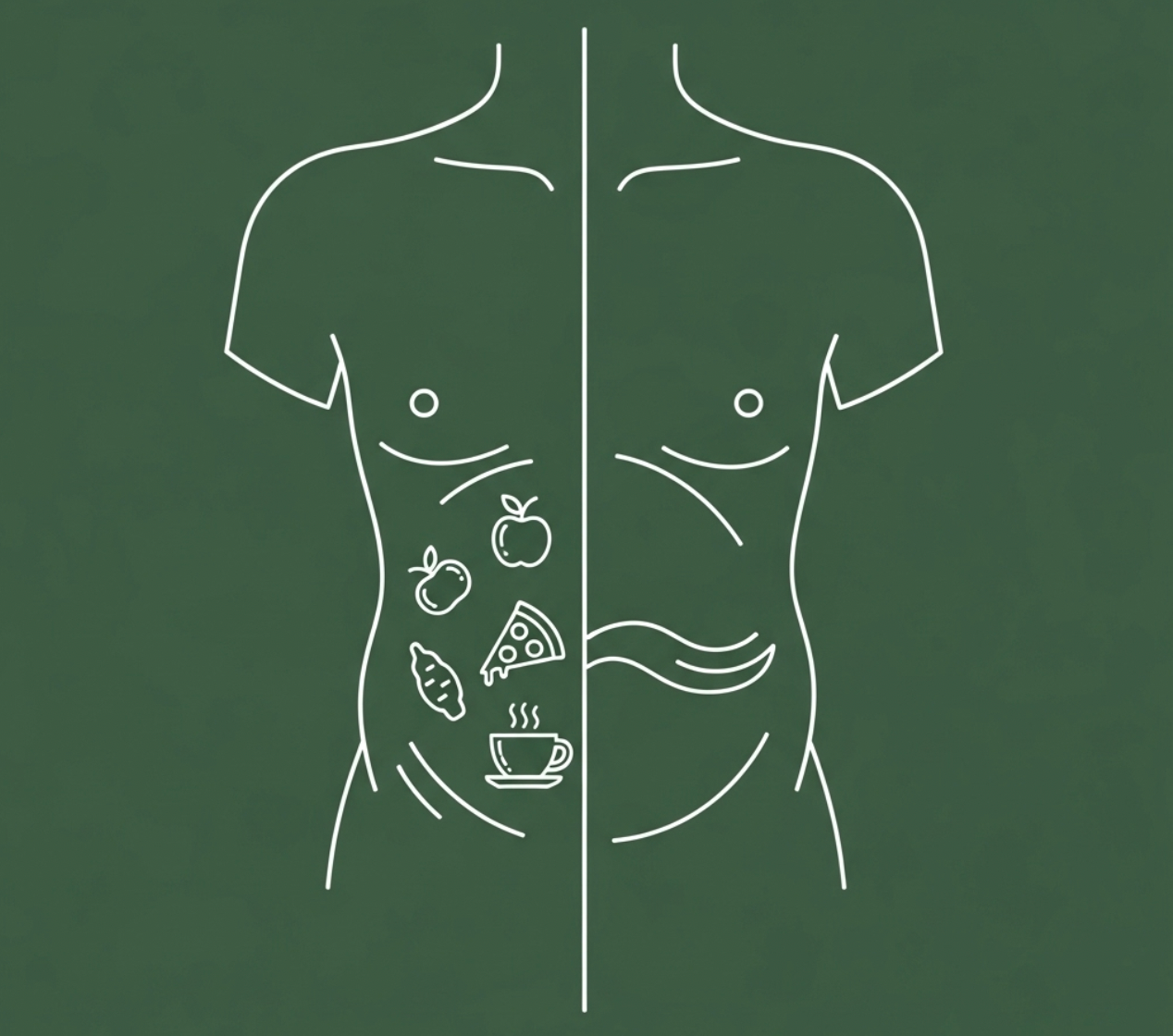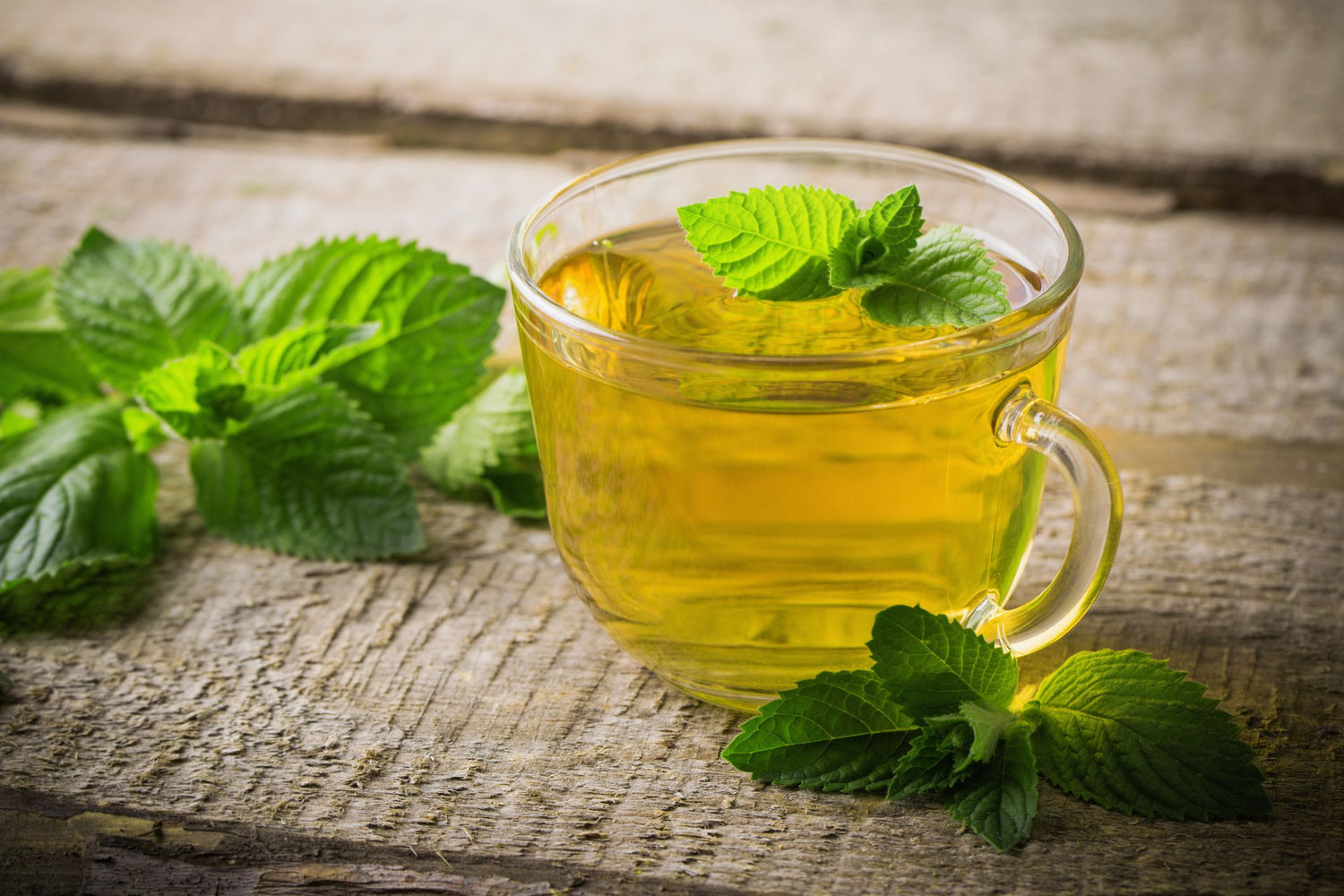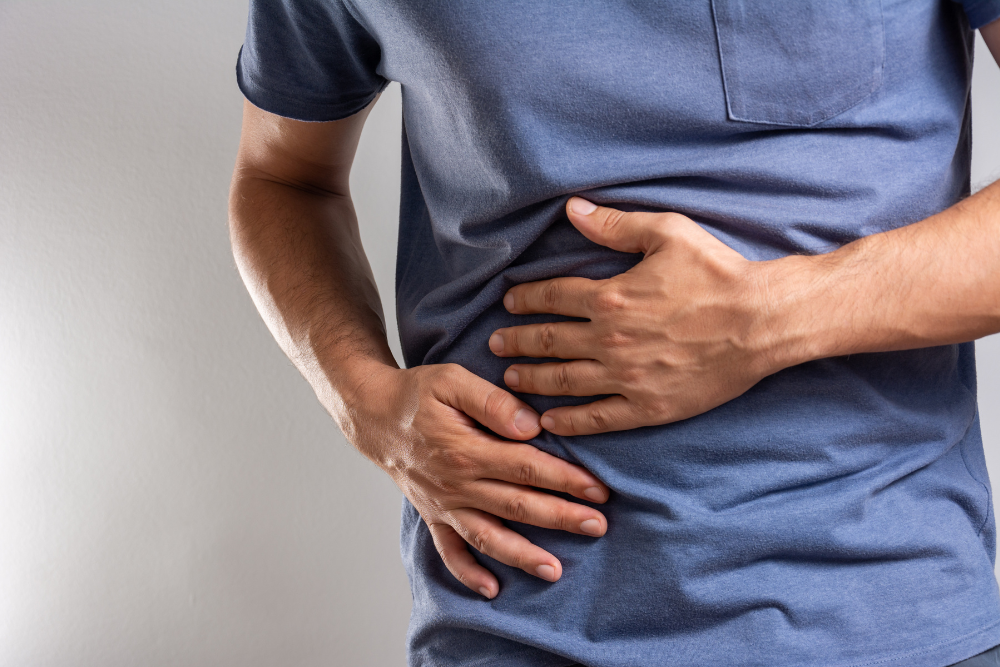Late-night cravings don't have to mean sleepless nights filled with burning chest pain. While most people think evening snacks automatically trigger acid reflux, the truth is more nuanced. With the right food choices and timing, you can satisfy hunger without compromising your sleep or digestive comfort.
This guide reveals 5 proven snack choices plus our 2-minute quiz to identify your unique triggers and give you a personalized plan that's built for your body , not someone else's!

Table of contents
Why Late-Night Eating Triggers Acid Reflux
Late-night snacking is one of the most common causes of nighttime heartburn. When you eat close to bedtime, several factors work against your digestive system.
Gravity stops helping when you lie down, making it much easier for stomach acid to escape upward into your esophagus. Your esophagus becomes more exposed to prolonged acid contact, and saliva production drops during sleep, which means less natural neutralization of stomach acid.
Research shows that 75% of people with GERD experience worse symptoms at night and nearly half say it ruins their sleep. Lying down also slows the movement of food through your digestive system, keeping acid-producing contents in your stomach longer.
The 3-Hour Rule: Why Timing Matters
Eating within 3 hours of lying down increases reflux episodes and worsens sleep quality. Ideally, you should stop eating 3 hours before bedtime, but we understand that's not always realistic.
If you must eat within that window, portion size and food choice become critical. A small, stomach-friendly snack is infinitely better than going to bed hungry and potentially overeating the next day.
5 Late-Night Snacks That Won't Cause Acid Reflux

1. Oatmeal with Banana
Oatmeal is naturally alkaline and low-acid, making it an ideal evening snack that soothes rather than irritates your digestive system. The soluble fiber creates a gel-like consistency that can coat and protect your esophageal lining. Add sliced banana for natural sweetness, bananas are low-acid and rich in potassium, which helps neutralize stomach acid and supports proper muscle function throughout your digestive tract.
Key benefits:
- Creates protective coating on esophageal lining
- Provides steady energy without blood sugar spikes
- Combines alkaline properties with natural acid-neutralizing potassium

2. Greek Yogurt with Honey
Greek yogurt provides high-quality protein that helps buffer stomach acid while offering sustained energy throughout the night. The straining process concentrates the protein content and creates a thicker, more satisfying texture that helps you feel full longer. Choose plain, low-fat varieties to avoid added sugars and excess fat that could trigger reflux symptoms. The probiotics in Greek yogurt support healthy digestion by maintaining beneficial gut bacteria balance, which can improve overall digestive function and reduce inflammation in the gastrointestinal tract.
3. Rice Cakes with Almond Butter
Rice cakes are exceptionally low-acid options that provide gentle, easily digestible carbohydrates without putting stress on your digestive system. Unlike many grain products, rice cakes break down quickly in your stomach, meaning less time for acid production and reduced risk of reflux symptoms. A thin layer of natural almond butter adds healthy fats and plant-based protein that promote satiety and help stabilize blood sugar levels throughout the night.
Why this combination works:
- Rice cakes absorb excess stomach acid due to their dry texture
- Almonds are naturally alkaline, complementing the neutral pH of rice
- Quick breakdown means minimal digestive stress
- Balanced macronutrients without overwhelming your system

4. Whole Grain Toast with Avocado
Whole grain toast provides steady, sustained energy and helps absorb excess stomach acid due to its complex carbohydrate structure and fiber content. Unlike refined breads that can cause blood sugar spikes, whole grain varieties break down slowly, providing consistent energy without overwhelming your digestive system. A small amount of mashed avocado adds healthy monounsaturated fats that are easily digestible and won't trigger reflux symptoms. Avocados are naturally low in acid and high in potassium, which helps maintain proper pH balance in your body and supports muscle function in the digestive tract.
5. Almonds (Small Portion)
Almonds are naturally alkaline and exceptionally gentle on the stomach, making them one of the safest late-night snack options for people prone to acid reflux. Unlike many nuts that are high in oils that can trigger symptoms, almonds contain primarily monounsaturated fats that are easily digestible and actually help reduce inflammation in the digestive tract. The magnesium content supports muscle relaxation throughout your body, including the smooth muscles of your digestive system, helping maintain proper function of the lower esophageal sphincter.
Benefits for reflux sufferers:
- Naturally alkaline properties neutralize stomach acid
- Anti-inflammatory effects reduce digestive tract irritation
- Magnesium supports proper muscle function in digestive system
- Natural oils create protective coating in stomach

Foods to Absolutely Avoid Before Bed
Certain foods are guaranteed reflux triggers when consumed close to bedtime. Spicy foods increase acid production and irritate the esophageal lining. Citrus fruits are highly acidic and directly trigger symptoms. Chocolate contains caffeine and compounds that relax the lower esophageal sphincter.
Tomato-based foods are highly acidic and slow to digest, while fried or fatty foods delay stomach emptying and increase reflux risk. Alcohol relaxes the lower esophageal sphincter and increases acid production, and caffeine stimulates acid production while potentially disrupting sleep.
This article and its contents have been medically reviewed by Aditya Jain (MD at Harvard Medical School and Op-Ed Fellow at Doximity).
Can I eat anything 2 hours before bed without getting acid reflux?
While the 3-hour rule is ideal, eating 2 hours before bed is manageable if you choose the right foods and keep portions small (150-200 calories). Stick to alkaline, low-acid options like the 5 foods mentioned in this guide, and stay upright for at least 30-60 minutes after eating to help gravity keep food in your stomach.
What's the worst thing to eat before bed if you have acid reflux?
Spicy foods, citrus fruits, chocolate, tomato-based foods, and anything fried or high in fat are the worst choices before bed. These foods either increase acid production, relax the lower esophageal sphincter, or delay stomach emptying all of which make reflux more likely when you lie down.
Can drinking milk before bed help with acid reflux?
Nonfat milk can provide temporary relief by acting as a buffer between stomach acid and your esophageal lining. However, whole milk and high-fat dairy can actually worsen reflux symptoms because fat delays stomach emptying and can relax the lower esophageal sphincter. If you want to try milk, stick to nonfat varieties and small portions.
How long should I wait to lie down after eating to prevent acid reflux?
Wait at least 30-60 minutes after eating before lying down, though 2-3 hours is optimal. This gives gravity time to help keep food and acid in your stomach. If you must lie down sooner, try elevating your upper body with a wedge pillow to maintain some gravitational assistance.










